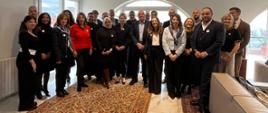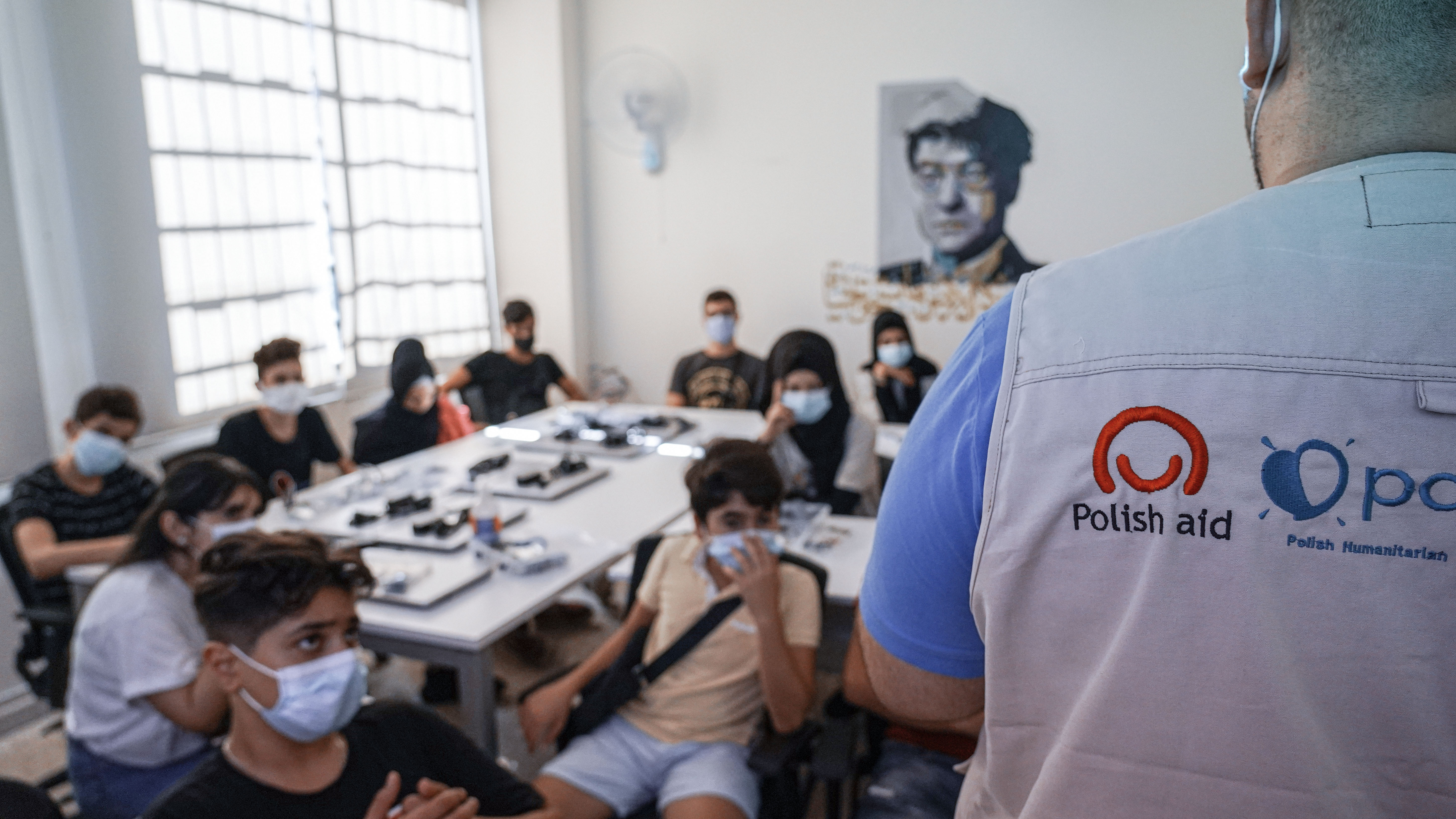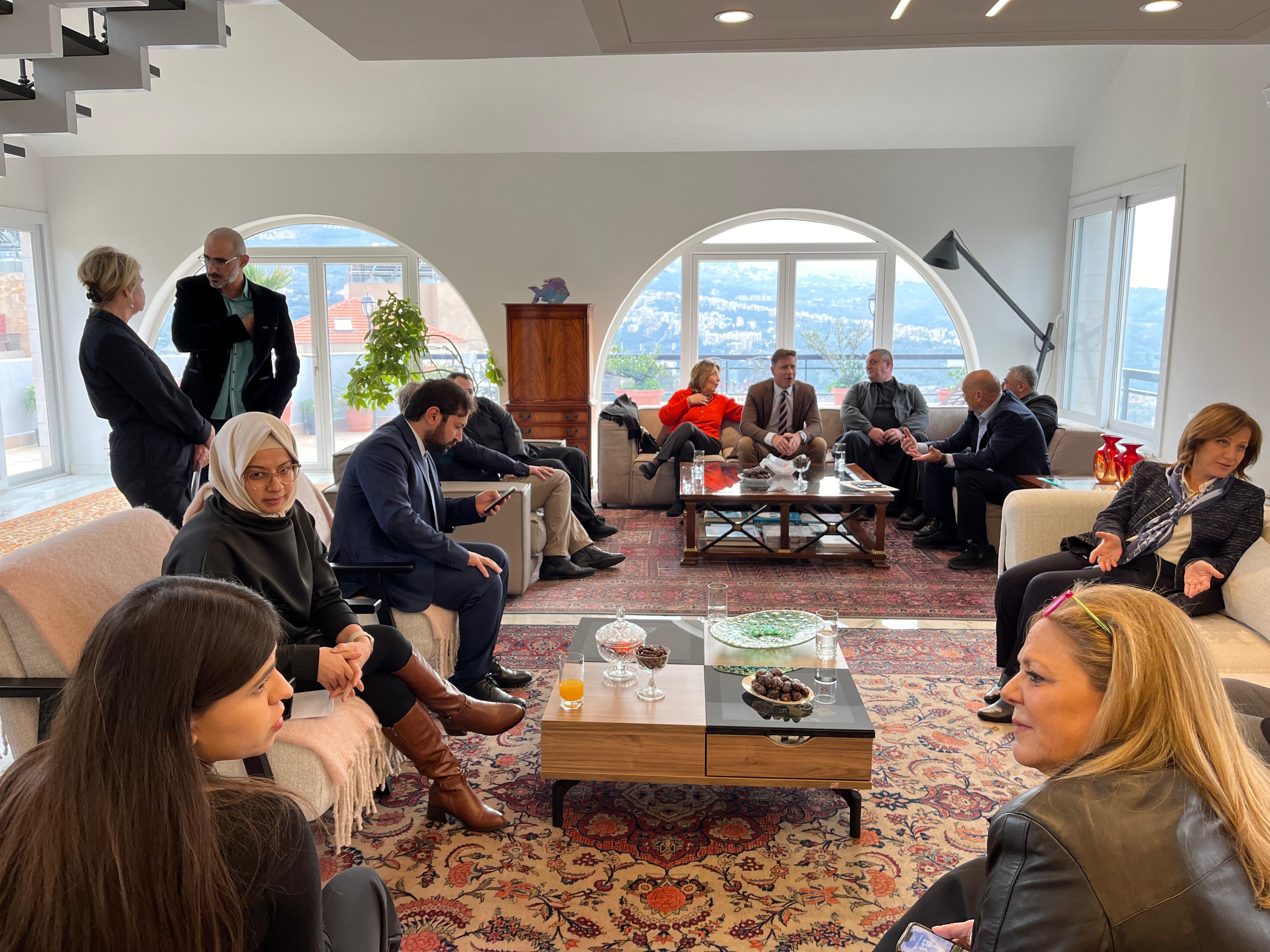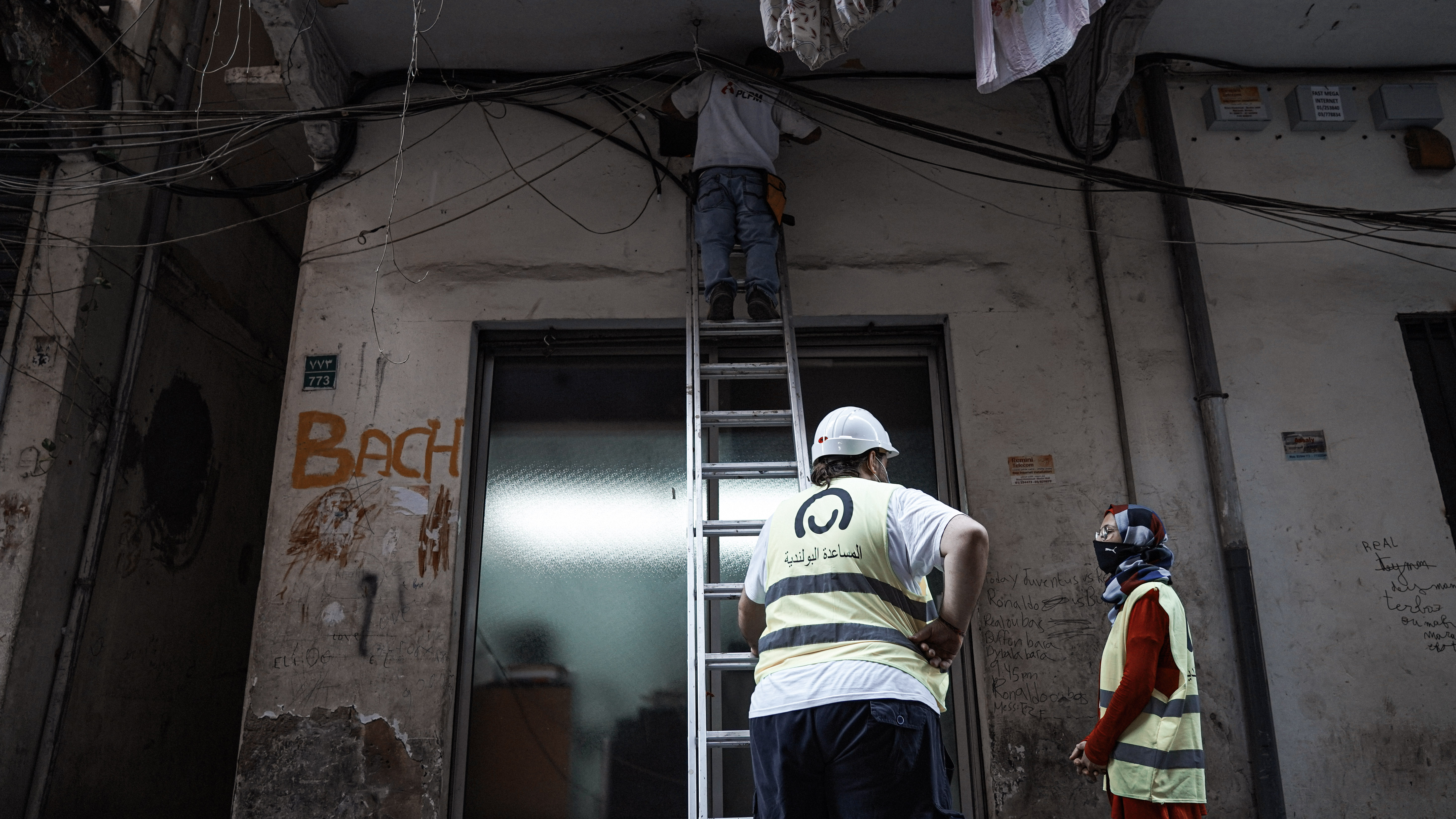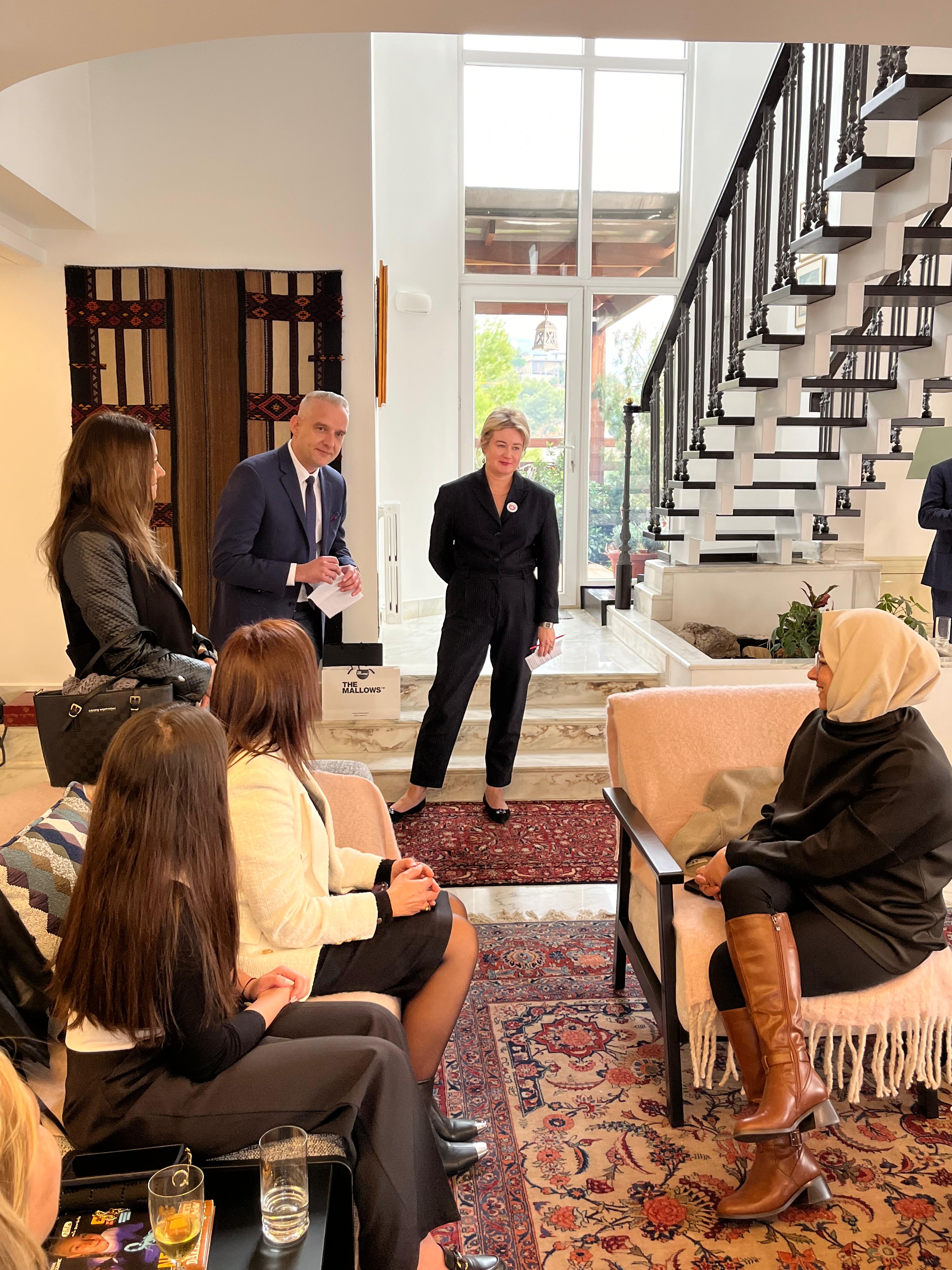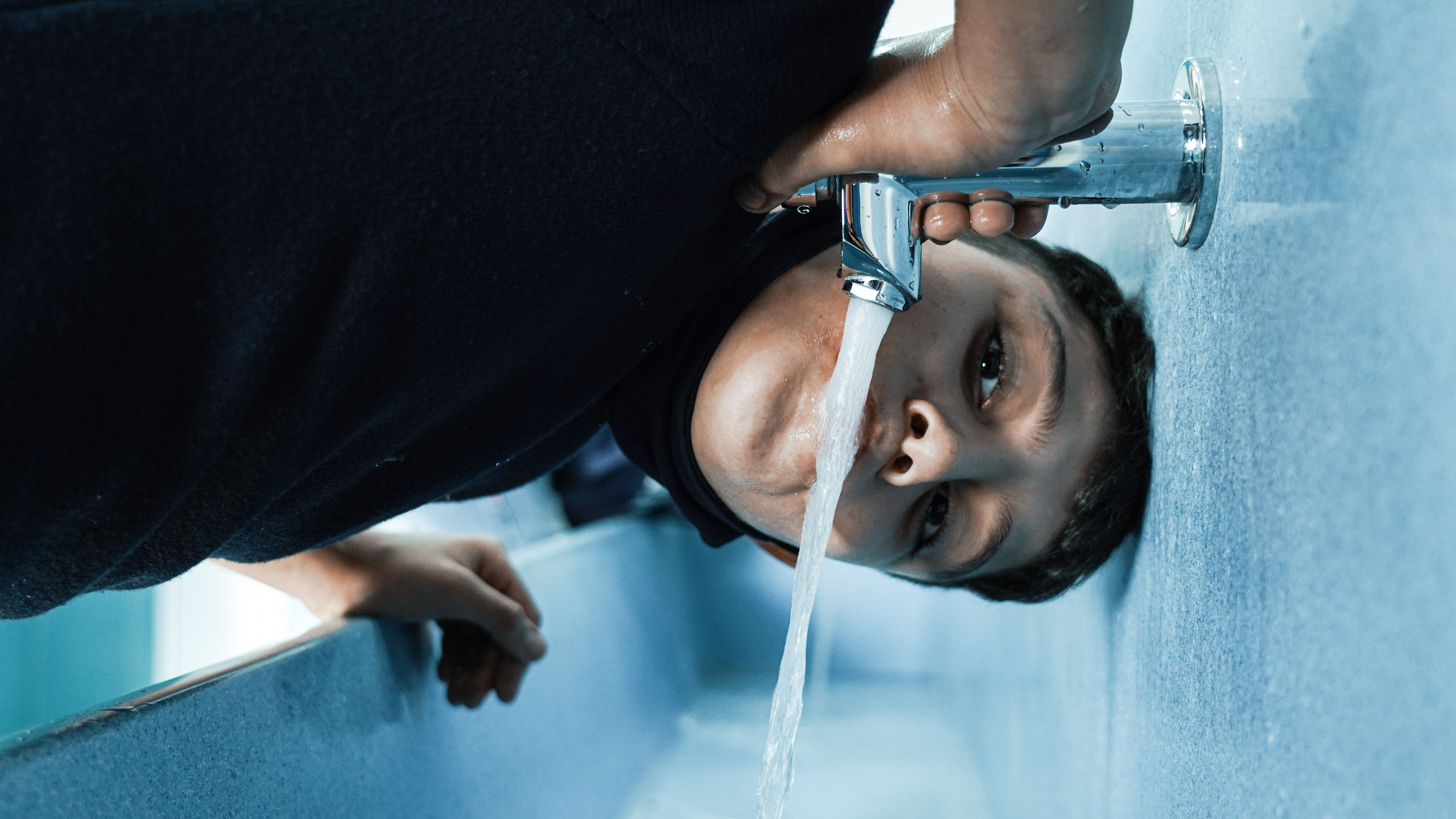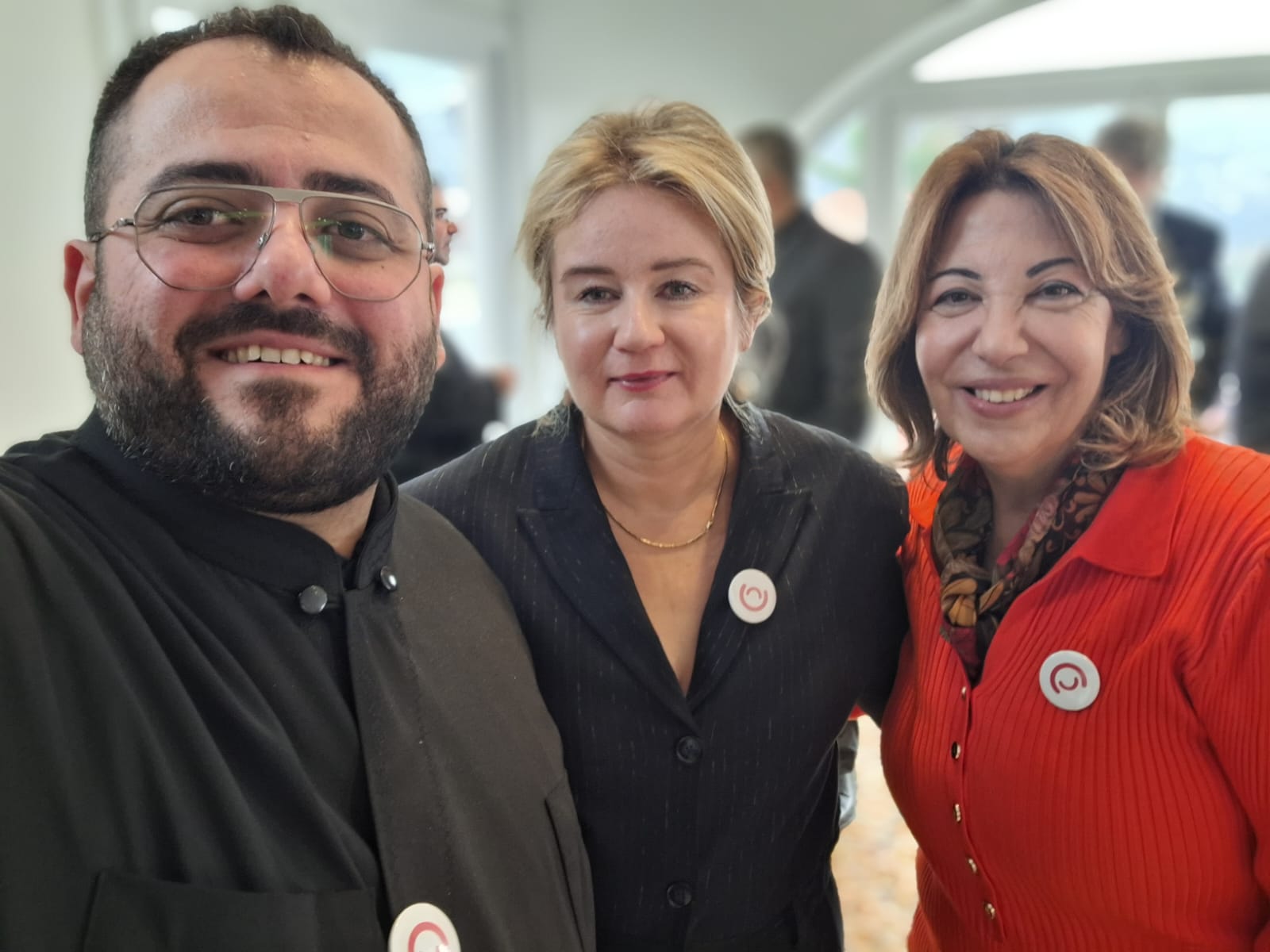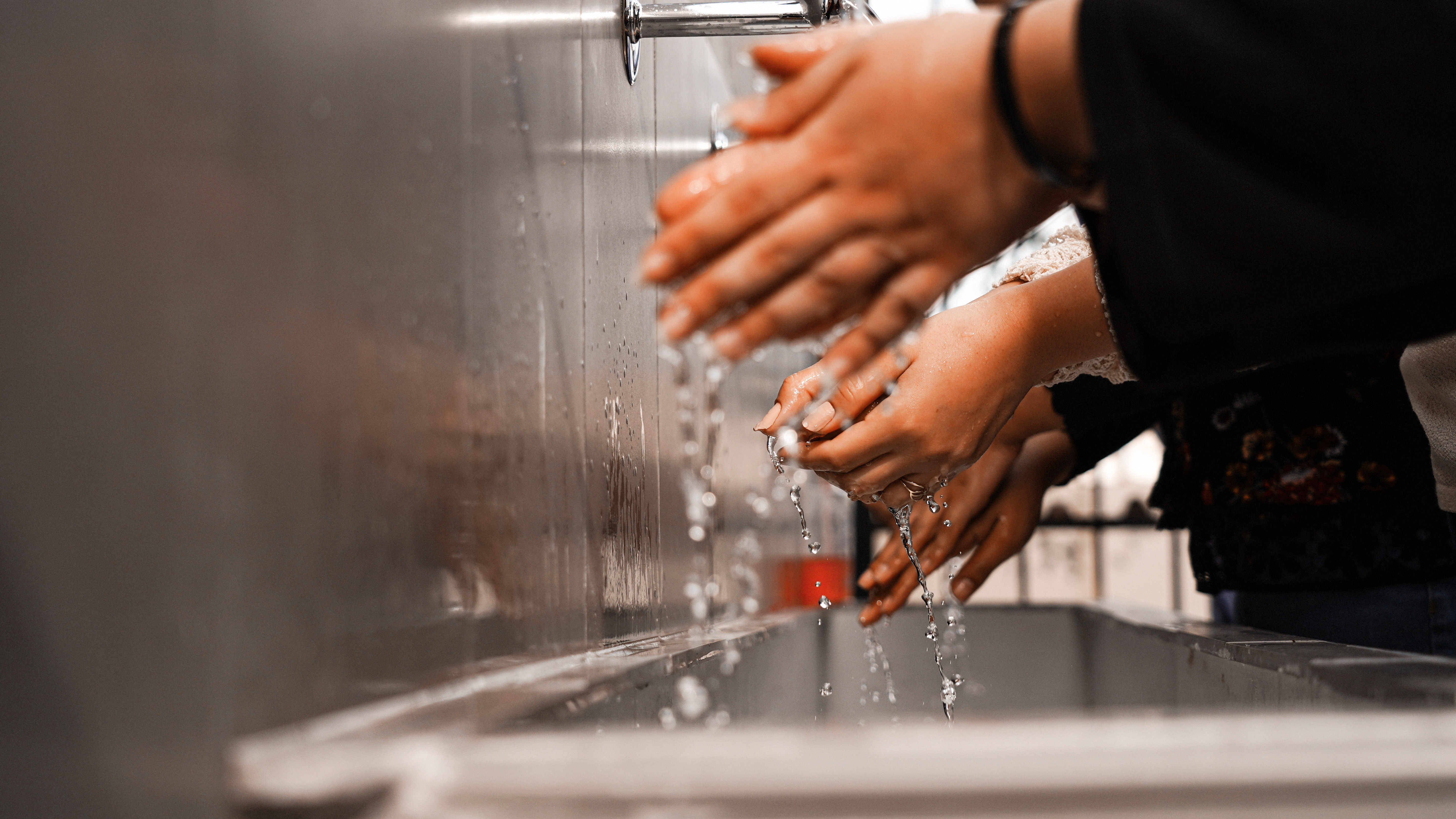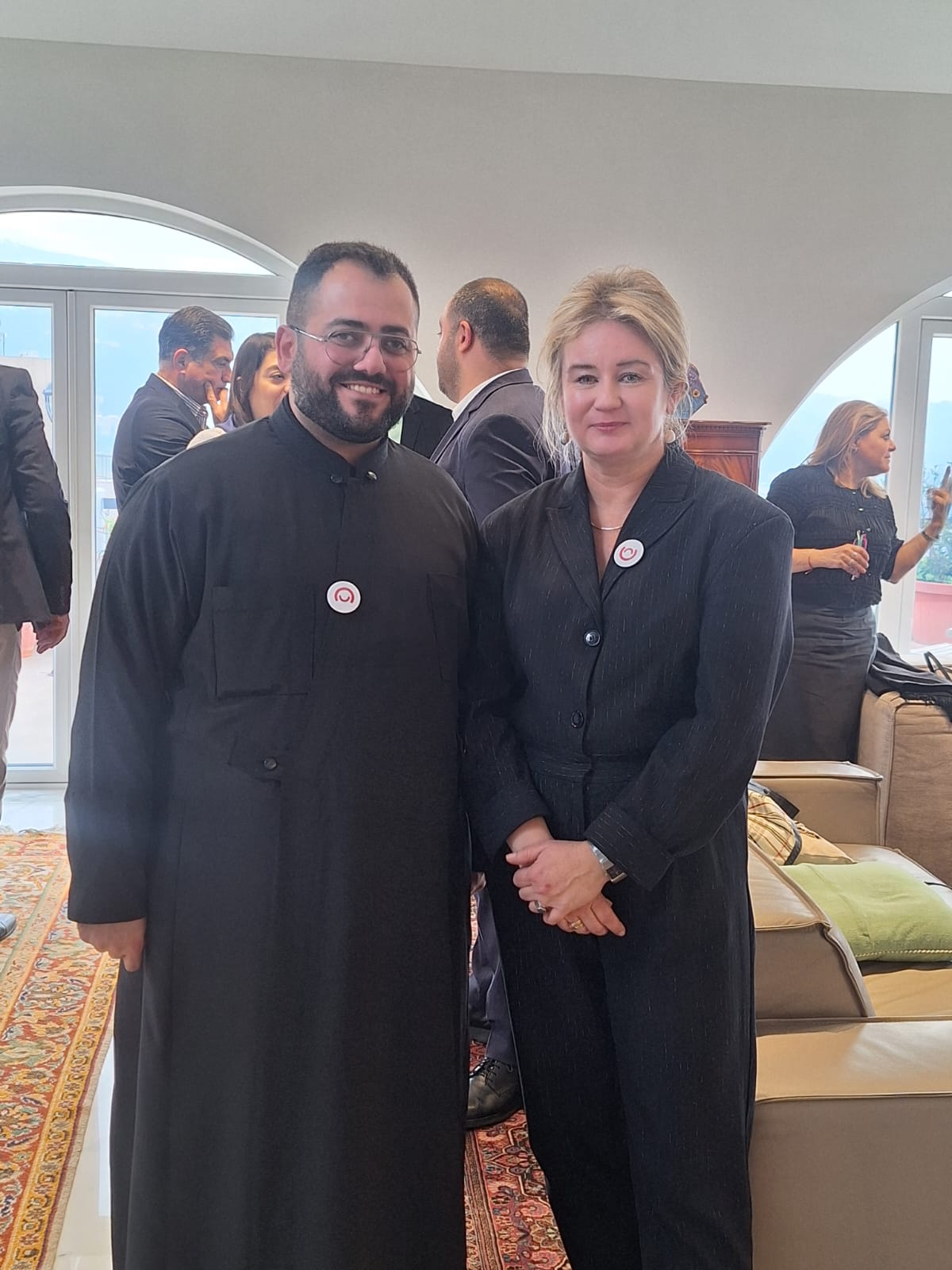Polish Aid in Lebanon
24.01.2025
On January 22nd, a meeting of beneficiaries and partners of Polish Aid projects was held at the Ambassador’s residence. It was a great opportunity to exchange experiences on implemented projects and discuss new ideas for the 2025.

Lebanon is a priority country for Polish Aid. In accordance with the Multiannual Development Cooperation Program, Poland constantly supports the local community, Syrian refugees and Lebanese state institutions.
In 2024, we focused mainly on helping schools and health centers. We financed the installation of solar panels on the roofs of several educational and first-contact medical aid institutions.
The Lebanese authorities are increasingly recognizing the benefits of using natural resources, including renewable energy sources, to ensure stable electricity supplies. The benefits of this solution are twofold - environmental and economic. A partial transition to clean energy has the potential to reduce Lebanon's dependence on fossil fuels and also leads to political independence, protecting Lebanon from the impact of changing trends in global energy markets. Polish Aid projects involving the installation of solar panels have helped to strengthen this sector of the economy.
In Foyer de la Providence, which provides support to orphans and people in need, we have installed mobile and stationary computer stations. These activities have contributed to improving the quality of education and the psychological comfort of the students as well as have served to counteract the digital exclusion of the poorest residents of Lebanon.
In the St. Sauveur school in Jeita we have created a science laboratory. We purchased complete sets of laboratory equipment containing high-quality elements aimed to conducting experiments during lessons. The school received electronic and chemical components.
We have continued our cooperation with UN-HABITAT in Lebanon aimed at improving conditions at fire stations in Beirut. So far we have modernized water, sewage and electricity networks (using renewable energy solutions) in Beirut and installed solar panels to power up public lamps.
A significant element of our assistance was cooperation with the IHelp, which, in agreement with the Lebanese Civil Defense, Lebanese, Red Cross and Beirut Fire Brigades, introduced trainings to strengthen the operational capabilities of the above mentioned institutions. Beneficiaries received equipment as well.
In Akkar province, in cooperation with the Polish Center for International Aid, we launched a number of infrastructure activities aimed at improving the safety of the poorest residents of Lebanon. The goal of the project was to strengthen local communities exposed to the effects of the economic crisis by supporting sustainable public services. The project activities were aimed at municipalities, associations of municipalities and civil defense units.
In Beirut, in cooperation with PAH, we have continued to support the training center in Tayyouneh. The aim of the project was to strengthen the position of marginalized people, especially women and youth within the rapidly changing labor market.
We continued to support people with learning disabilities. In 2024, we financed the construction of a culinary workshop for children and adults with autism in Zgharta in Northern Lebanon.
An important part of our support in Lebanon remains the improvement of the economic situation of mountainous rural areas and the strengthening of the social and economic solidarity of residents. The View Lebanon project, implemented by the Phoenicia Foundation named after Saint Charbel, contributes to increasing communication and interaction between small towns, which in the future may result in good cooperation.
Lebanon is home to one of the most important bird migration routes in the world. Every year, poachers, irresponsible hunting enthusiasts who have no knowledge of sustainable ecosystems kill hundreds of protected species in the country. Polish and Lebanese ecologists, in cooperation with the Polish Embassy in Lebanon, have been actively working to protect migratory birds in Lebanon for many years.
In 2025, our activities will focus on supporting human capital, improving the quality, conditions and access to education, protecting the environment, improving waste management, increasing access to water and sanitation infrastructure and reducing the effects of climate change, as well as developing entrepreneurship and the private sector by providing access to high-quality technical and vocational education at all levels.
